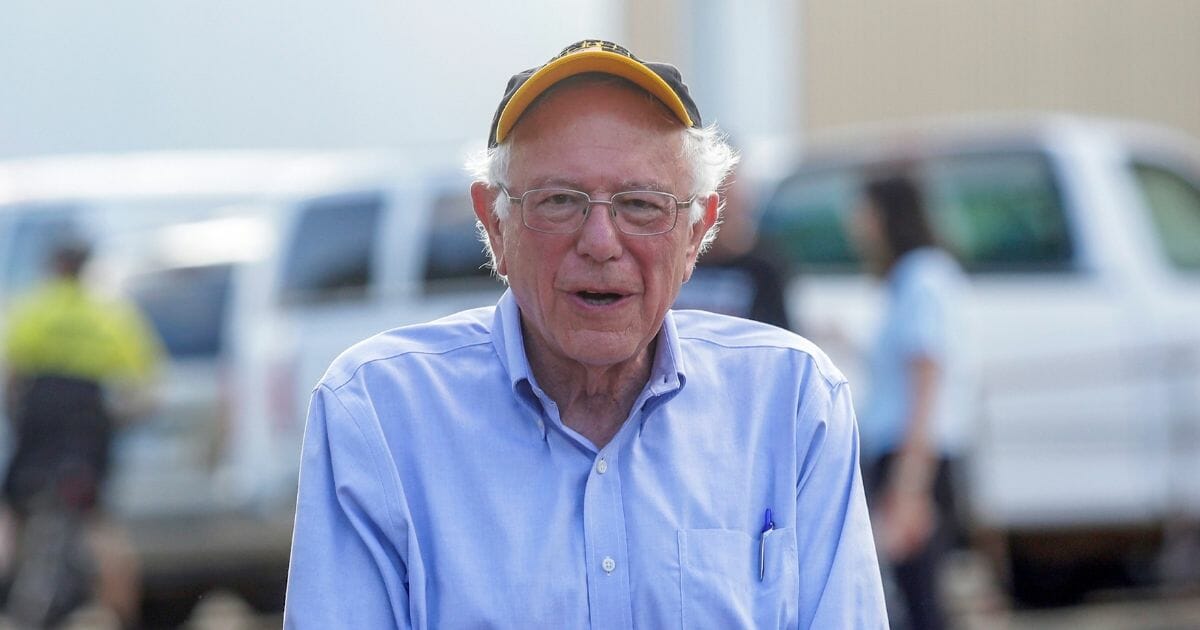
Sanders Finally Reveals Disgustingly Enormous Price Tag of Healthcare Plan
Independent Vermont Sen. Bernie Sanders, an openly declared socialist and top contender for the 2020 Democratic presidential nomination, has long touted a single-payer, government-run “Medicare for All” system of health care coverage for all Americans … and non-citizens and illegal aliens.
Sanders has typically been sparse with details when pressed for specifics on his plan, which would essentially eliminate private health insurance and force everybody to accept a government-managed health care plan.
But Sanders has finally offered up an estimate of what his Medicare for All plan might cost American taxpayers over a 10-year period — and it was a mind-boggling sum equivalent to roughly half of all of the combined wealth around the entire globe.
Speaking on Tuesday at an event moderated by Washington Post reporter Robert Costa, Sanders was asked for an “approximate number” of how much his Medicare for All proposal would ultimately cost.
Costa prefaced that question by noting former Vice President Joe Biden, the front-running 2020 candidate for Democrats, had unveiled his own health care plan on Monday — merely a rehash of Obamacare — that would cost an estimated $750 billion over 10 years.
Sanders replied with his approximate number of “Somewhere between $30 and $40 trillion over a 10-year period.”
“Which is much less expensive — let’s talk about costs,” Sanders quickly added. “What the most serious economists tell us, that if we do nothing to fundamentally change the health care system — which is what Joe (Biden) is talking about, keeping it as it is — we’ll be spending something like $50 trillion over a 10-year period.”
“I don’t think there’s a study out there, Bob, that does not suggest that Medicare for All is far less expensive than continuation of the current system,” Sanders said.
There is quite a bit that is incredibly misleading or flat-out wrong with what Sanders said, but let’s take them one at a time. First, the exorbitant estimate of up to $40 trillion over a 10-year period for the government to provide health care to everyone residing within the United States.
According to the Congressional Budget Office, the projected outlays for the federal government in 2019 is $4.4 trillion. Sanders’ 10-year cost estimate, broken down on an annual basis of roughly $4 trillion, would essentially double our nation’s annual budget and quintuple the annual budget deficit that now stands at nearly $1 trillion per year.
Even raising taxes to obscenely confiscatory levels — pretty much a one-time deal, as virtually all of America’s wealth and prosperity would quickly be wiped out — would fail to even remotely cover all or even some of his costly proposal.
Consider this report from Business Insider in 2017 on the question of how much combined wealth and money there is in the entire world. With regard to actual coin and paper currency in circulation, the U.S. Federal Reserve estimates there is approximately $1.5 trillion in the U.S., while the Bank for International Settlements estimates there is roughly $5 trillion in combined currency circulating worldwide.
In other words, all of the hard and paper currency in the world would barely cover one year of Sanders’ Medicare for All plan. But things aren’t any better when what is known as “broad money” is factored in, such as all of the world’s checking and savings and money-market accounts and liquidatable assets — essentially theoretical digital money in the computer systems of banks — are combined.
According to the CIA World Factbook, the combined global total of “broad money” was just slightly more than $80 trillion in 2017, meaning Sanders’ plan would essentially wipe out half of the world’s combined wealth in a ten-year period.
One final observation that must be noted: Sanders claimed his $40 trillion price tag would be less expensive than the estimated $50 trillion that some economists think would be spent on health care over the next 10 years under the current system that Biden would like to keep.
What Sanders conveniently fails to mention is that, even assuming the $50 trillion estimate is accurate, it is money being voluntarily spent by private citizens on private health care insurance coverage of their own accord — not by just U.S. taxpayers at the barrel of a gun and threat of imprisonment for not taking part in a government-mandated program with no alternative choice.
Sen. Sanders is either incredibly unknowledgeable about how the economy works and what he is proposing, or he is being particularly deceitful in the way he has portrayed his ludicrously costly plan as being “less expensive” for the American people in the long run.
Truth and Accuracy
We are committed to truth and accuracy in all of our journalism. Read our editorial standards.
Advertise with The Western Journal and reach millions of highly engaged readers, while supporting our work. Advertise Today.












